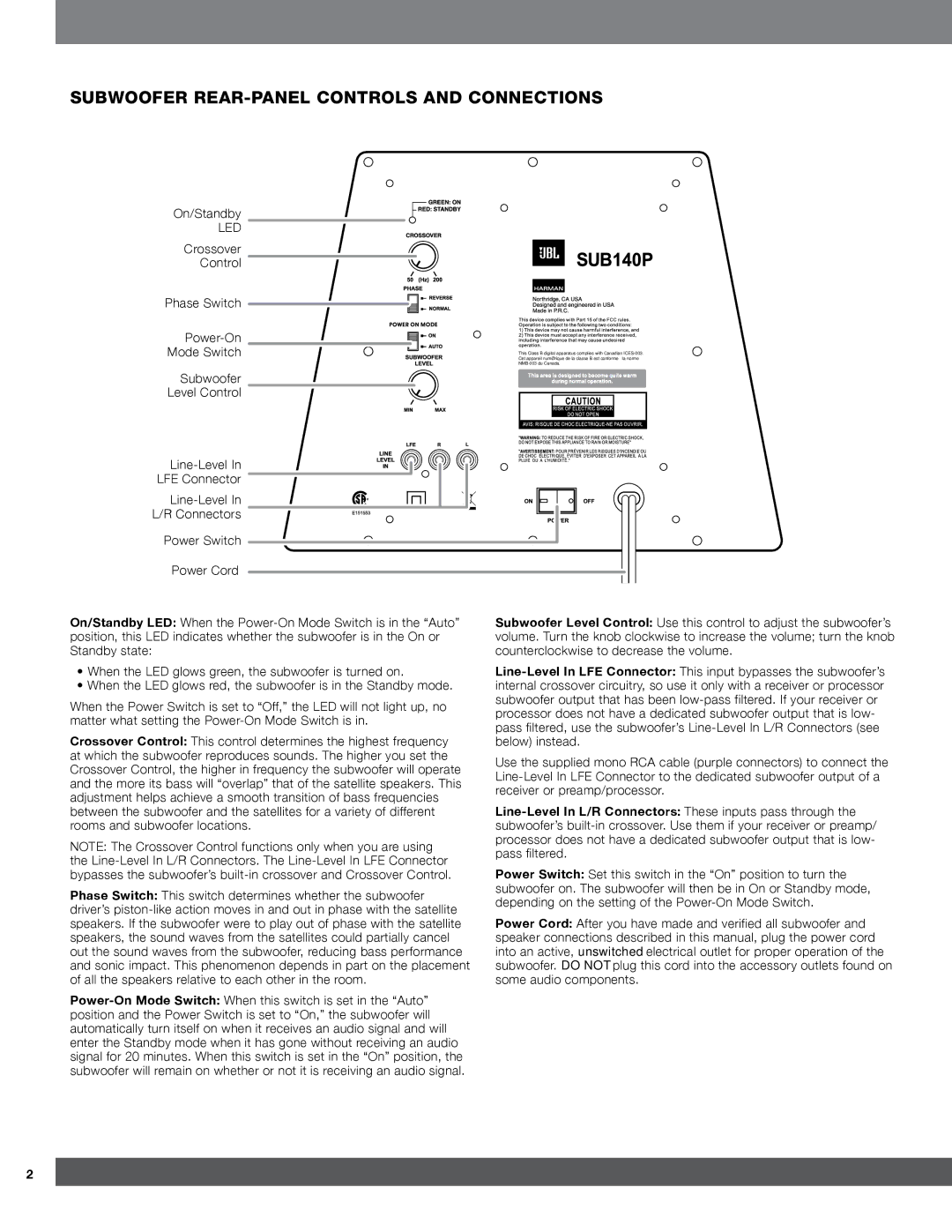
SUBWOOFER REAR-PANEL CONTROLS AND CONNECTIONS
On/Standby
LED
Crossover
Control
Phase Switch
Subwoofer Level Control
LFE Connector
L/R Connectors
Power Switch
Power Cord
This Class B digital apparatus complies with Canadian
On/Standby LED: When the
•When the LED glows green, the subwoofer is turned on.
•When the LED glows red, the subwoofer is in the Standby mode.
When the Power Switch is set to “Off,” the LED will not light up, no matter what setting the
Crossover Control: This control determines the highest frequency at which the subwoofer reproduces sounds. The higher you set the Crossover Control, the higher in frequency the subwoofer will operate and the more its bass will “overlap” that of the satellite speakers. This adjustment helps achieve a smooth transition of bass frequencies between the subwoofer and the satellites for a variety of different rooms and subwoofer locations.
NOTE: The Crossover Control functions only when you are using the
Phase Switch: This switch determines whether the subwoofer driver’s
Subwoofer Level Control: Use this control to adjust the subwoofer’s volume. Turn the knob clockwise to increase the volume; turn the knob counterclockwise to decrease the volume.
Use the supplied mono RCA cable (purple connectors) to connect the
Power Switch: Set this switch in the “On” position to turn the subwoofer on. The subwoofer will then be in On or Standby mode, depending on the setting of the
Power Cord: After you have made and verified all subwoofer and speaker connections described in this manual, plug the power cord into an active, unswitched electrical outlet for proper operation of the subwoofer. DO NOT plug this cord into the accessory outlets found on some audio components.
2
